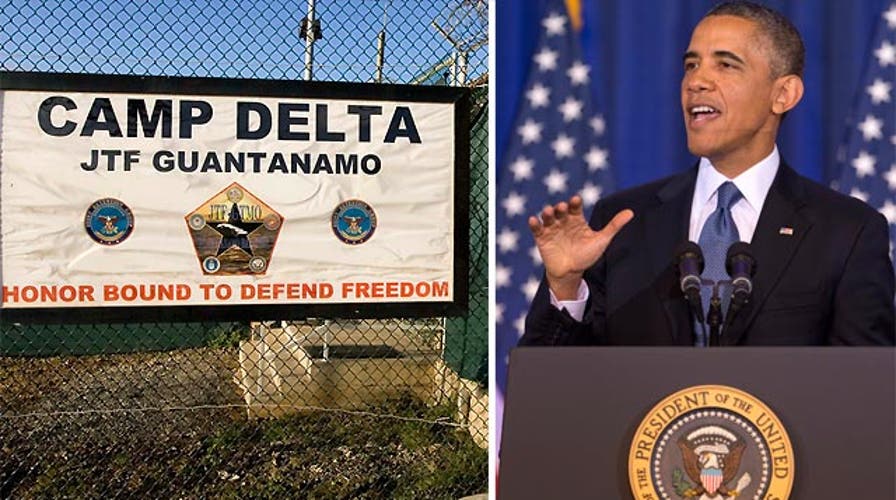President Obama drew sharp criticism from Republican senators Thursday for urging the repeal of the 2001 law that effectively authorized the war on terror.
Sen. John McCain, R-Ariz., claimed the president was assuming Al Qaeda is "on the run," calling that mindset "really incredible."
The president addressed the law, known as the Authorization for Use of Military Force (AUMF), toward the end of an hour-long speech largely devoted to explaining and defending his administration's lethal drone program. He even referenced the fact that America is at war in defending the legality of the drone strikes.
But Obama made clear that his ultimate goal is to update, and then repeal, the use of force law, saying he wants to fight terrorism without keeping the country on a "perpetual war-time footing."
"The AUMF is now nearly twelve years old. The Afghan War is coming to an end. Core Al Qaeda is a shell of its former self," Obama said. "Unless we discipline our thinking our definitions, our actions, we may be drawn into more wars we don't need to fight, or continue to grant presidents unbound powers more suited for traditional armed conflicts between nation states.
"So I look forward to engaging Congress and the American people in efforts to refine, and ultimately repeal, the AUMF's mandate. And I will not sign laws designed to expand this mandate further," he said. "Our systematic effort to dismantle terrorist organizations must continue. But this war, like all wars, must end. That's what history advises. That's what our democracy demands."
The resolution was passed by Congress three days after the Sept. 11, 2001, terror attacks. It authorized the military and president to use all necessary force to go after those responsible, and prevent future acts of terror. It remains in effect.
Obama will find support in Congress for revising and updating the law. Before the president's speech, Republican Sen. Bob Corker, top Republican on the Senate Foreign Relations Committee, said the original law is "increasingly unrelated to current terrorist threats."
But the call to repeal it stirred protests from some Republicans.
Sen. Kelly Ayotte, R-N.H., said she was "troubled" to hear that.
"We remain at war with terrorists," she said, pointing to activity in Yemen and Somalia and the Sept. 11, 2012, attack on the U.S. compound in Benghazi. "Now is not the time where we can consider repealing the authorization for the use of military force."
McCain agreed.
"I believe we are still in a long drawn-out conflict with Al Qaeda. To somehow argue that Al Qaeda is ... on the run, comes from a degree of unreality that to me is really incredible," he said, saying the terror network is "expanding" across the Middle East.
"To somehow think that we can bring the authorization of the use of military force to a complete closure contradicts reality of the facts on the ground," he said.
The president tackled a host of tricky subjects in his speech Thursday at the National Defense University. He defended his administration's drone program, while saying his administration is setting new guidelines and opening the door to new levels of congressional oversight.
He also renewed his call to close Guantanamo Bay, pushing to resume transfers of detainees from the prison camp.
In that context, he called for changes to the use of force act.
Critics of the act say it's been the underpinning for controversial policies ranging from warrantless wiretapping to the drone program. The New York Times argued in a recent editorial that it should be repealed, saying it is becoming the basis for a "perpetual, ever-expanding war that undermined the traditional constraints on government power."





